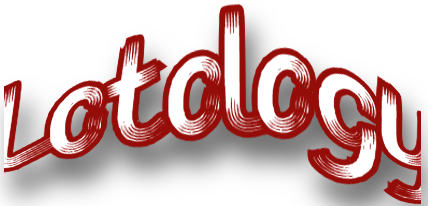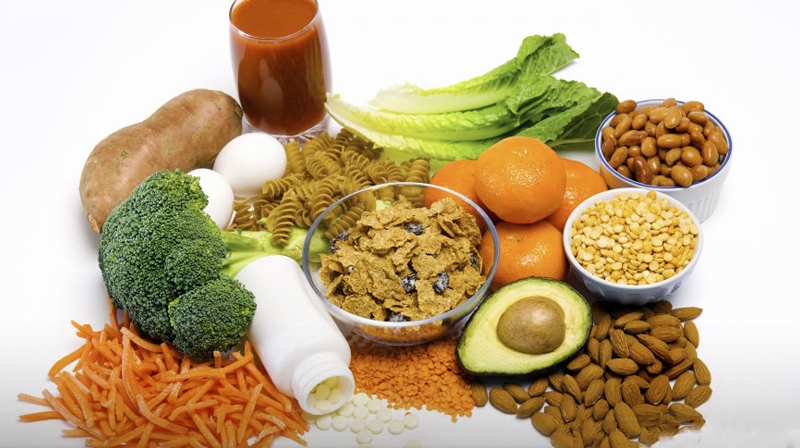Food and nutrition frequently discuss the need for macronutrients, such as carbohydrates, proteins, and fats. But what about the vital vitamins that ensure our bodies work at their best? One of them is ThiamineThiamine (Vitamin B1)–a water-soluble vitamin that is essential for producing energy, nerve function, and metabolism.
Although ThiamineThiamine can be found naturally in many foods, many people do not receive enough based on their dietary habits, health issues, or other life factors. This leads us to a crucial issue: Are food sources sufficient? Or do you require supplements to fulfill requirements for your everyday Vitamin B1 needs?
This blog will discuss the advantages of eating ThiamineThiamine when supplementation is required and how to tell whether Thiamine supplements suit you.
What Is Thiamine and Why Is It Important?
Thiamine, also referred to as Vitamin B1 is an essential nutrient that aids the body in turning the energy from carbohydrates to. It is a crucial component in:
- Metabolism – The process of breaking down food into usable energy.
- Neuron Function – Facilitating muscle and nerve communication.
- Brain Health – Enhancing cognition, memory, and concentration.
Since ThiamineThiamine is water-soluble, the body can’t retain it for long. Therefore, we require an ongoing supply of Thiamine via food sources or supplements containing Thiamine to avoid deficiency.
Top Food Sources of Thiamine
The most effective way to obtain ThiamineThiamine is to eat a balanced diet. Here are a few of the best natural sources of ThiamineThiamine
1. Whole Grains
- Brown rice
- Oats
- Whole wheat bread
- Quinoa
2. Legumes and Beans
- Lentils
- Black beans
- Peas
3. Nuts and Seeds
- Sunflower seeds
- Macadamia nuts
4. Animal Products
- Pork (one of the highest producers of ThiamineThiamine)
- Beef
- Chicken
- Fish (trout or salmon)
5. Dairy and Eggs
- Milk
- Yogurt
- Eggs
6. Fruits and Vegetables
- Oranges
- Asparagus
- Brussels sprouts
A variety of food items can supply enough ThiamineThiamine to many. In some instances, the amount of food consumed might not be sufficient.
When Do You Need Thiamine Supplements?
Although food sources contain natural ThiamineThiamine, some factors may cause an increase in the need for supplementation with ThiamineThiamine. Let’s consider some instances where supplementation could be beneficial.
1. Poor Dietary Habits
Highly refined foods such as refined grains, processed foods, and diets high in sugar are often deficient in Thiamine. Because refined grains are stripped of most of their B1-rich content, those who primarily consume white rice, white bread, and processed foods may not receive enough ThiamineThiamine.
2. Stress levels and Lifestyle Factors
Smoking, chronic stress excessively, caffeine consumption, and alcohol consumption could decrease the thiamine levels within the body. People who drink heavily, mainly, are more susceptible to deficiency of ThiamineThiamine, which can lead to neurological disorders such as Wernicke Korsakoff syndrome.
3. Medical Conditions That Affect Thiamine Absorption
Certain digestive conditions, such as celiac disease, IBS, or irritable intestinal syndrome (IBS), can decrease thiamine absorption. Patients with diabetes may also have a higher risk because ThiamineThiamine can be removed by frequent urine leaks. In these instances, thiamine supplements will help to maintain the proper levels.
4. High Energy Demands
Pregnant women, athletes, and those with physically demanding jobs could require more ThiamineThiamine because of their increased energy metabolism. Supplementing with supplements with ThiamineThiamine will ensure long-lasting energy levels and better recovery.
Thiamine Supplements, in comparison to. Food sources: Which Is More Effective?
Let’s examine the natural food sources and supplements containing Thiamine to determine when one might be better.
| Factor | Food Sources | Thiamine Supplements |
| Natural Intake | Found in whole foods | Synthetic but highly effective |
| Absorption | Some loss due to cooking | Easily absorbed forms like Benfotiamine |
| Convenience | Requires meal planning | Quick and easy dosage |
| Deficiency Prevention | Possible with a balanced diet | Essential for those at risk |
| Effectiveness for High Needs | May not be enough for some | Ideal for those with medical conditions or high stress |
When Food Sources Are Enough
- If you are eating a balanced diet rich in whole grains, protein, and other vegetables.
- If you do not have any other digestive problems that impact the absorption of nutrients.
- If your energy level and your nerves’ function are healthy, you are in good shape.
When Thiamine Supplements Are Needed
- You should be aware of the following if you consume predominantly refined or processed foods.
- If you are suffering from persistent tiredness, headaches, and nerve aches.
- If you suffer from an illness or condition that impacts the absorption of ThiamineThiamine.
- If you are a person with more energy requirements (pregnant athletes and pregnant women).
How to Choose the Right Thiamine Supplements
If you are deciding to use supplements with Thiamine, selecting the correct kind is crucial:
- Thiamine Hydrochloride (HCl) – The most commonly used and affordable type.
- Benfotiamine Benfotiamine – A fat-soluble variant that has better absorption and is particularly good for the health of nerves.
- Thiamine Mononitrate is found in multivitamins and fortified foods.
The daily dose of ThiamineThiamine for adults ranges from 1.1-1.2 mg; however, people who suffer from deficiencies might require higher doses.
Are There Any Side Effects of Thiamine Supplements?
Thiamine supplementations are generally safe since excess amounts are excreted by urine. However, in rare instances, individuals may be affected by:
- Mild nausea or stomach discomfort
- Allergic reactions (infrequent)
It is always recommended to talk with an expert before taking high-dose supplements with Thiamine, especially in the case of medical issues.
Conclusion
Both supplements with ThiamineThiamine and food sources are crucial in maintaining healthy Vitamin B1 amounts. While eating a balanced and nutritious diet is the most effective method of obtaining the mineral thiamine, some might require supplements because of food restrictions, medical conditions, or lifestyle-related factors.
If you are suffering from a lack of energy and nerve problems or digestive issues If you suffer from digestive issues, nerve problems, or low energy, you could benefit by adding supplements for ThiamineThiamine to your daily routine. But for those who are on a nutrient-rich diet, the food sources could be enough to supply the daily requirements of ThiamineThiamine.
The most important thing is listening to the body and ensuring you’re getting sufficient Vitamin B1 to help support your nerve function, metabolism, and overall well-being.
FAQs About Thiamine Supplements
Q1. Do I obtain enough ThiamineThiamine in food alone?
Most people can. However, certain conditions such as stress, alcohol consumption, and medical conditions could require supplements with ThiamineThiamine.
Q2. What are the most nutritious sources of Thiamine from food?
Whole grains such as nuts, legumes as well as fish, meat, and dairy are all excellent natural sources of ThiamineThiamine.
Q3. How can I tell whether I require thiamine supplements?
If you are suffering from frequent fatigue or brain fog, nerve pain, or food restrictions, Thiamine supplements can help.
Q4. Is ThiamineThiamine a safe supplement to use for everyday use?
They are, in fact, water-soluble and don’t accumulate in the body. This makes them safe to use regularly.
Q5. What kind of Thiamine supplement is the most effective?
Benfotiamine is excellent for nerve health, and Thiamine HCl is typically employed for general health.
Want more insights? Keep visiting Lotology for the latest updates and information!

